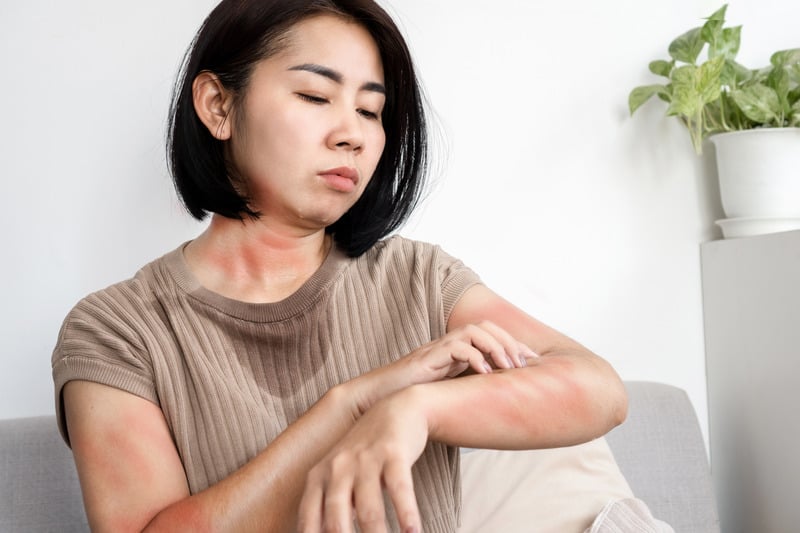Eczema is a common skin condition that affects millions of people worldwide. It causes the skin to become red, itchy, and inflamed. Managing eczema can be challenging, but with the right strategies, you can keep flare-ups under control and protect your skin. This article will guide you through understanding eczema, managing flare-ups, and taking care of your skin.
What is Eczema?
Eczema, also known as atopic dermatitis, is a condition that makes your skin red and itchy. It is most common in children but can occur at any age. Eczema is a chronic condition, which means it can last for a long time, often years. While there is no cure for eczema, there are many ways to manage it and reduce symptoms.
Understanding Your Triggers
One of the key steps in managing eczema is understanding what triggers your flare-ups. According to Dr. Sarah Lee, a board-certified dermatologist, “The key to eczema management is understanding your triggers. This might mean keeping a diary of potential irritants, like new detergents, stress levels, or weather changes. Once you identify your triggers, you can develop a personalized strategy to minimize flare-ups.”
Common Triggers
- Detergents and Soaps: Some soaps and detergents can irritate your skin.
- Stress: High stress levels can lead to flare-ups.
- Weather Changes: Cold, dry air or hot, humid weather can affect your skin.
- Allergens: Dust mites, pet dander, and pollen can trigger eczema.
Effective Treatments
While there isn’t a cure for eczema, there are many effective treatments to manage symptoms. Dr. Michael Chen, another board-certified dermatologist, says, “From topical medications to light therapy, finding the right combination for your individual needs is crucial. Don’t hesitate to work with your dermatologist to explore different options.”
Common Treatments
- Topical Corticosteroids: These are creams or ointments that reduce inflammation and itching. A study published in the Journal of the American Academy of Dermatology (JAAD) found that topical corticosteroids are effective in managing atopic dermatitis.
- Moisturizers: Keeping your skin hydrated is essential. Use a thick, fragrance-free moisturizer.
- Antihistamines: These can help reduce itching.
- Light Therapy: This involves exposing the skin to controlled amounts of natural sunlight or artificial UV light.
The Emotional Impact of Eczema
Eczema is not just a skin condition; it can significantly impact mental health. Dr. Katherine Miller, a psychologist specializing in chronic skin conditions, explains, “The constant itch, dryness, and visible signs can lead to anxiety, depression, and even social isolation. Seeking support from both medical professionals and support groups can be vital in managing the emotional toll of eczema.”
Managing Stress
Managing stress is crucial for controlling eczema. A systematic review published in the journal “Dermatologic Therapy” analyzed the relationship between stress, psychological well-being, and the severity and frequency of eczema flare-ups. The review found that stress can worsen eczema symptoms.
Tips for Managing Stress
- Exercise Regularly: Physical activity can help reduce stress.
- Practice Relaxation Techniques: Techniques like deep breathing, meditation, and yoga can help.
- Seek Support: Talking to friends, family, or a support group can provide emotional relief.
Protecting Your Skin
Protecting your skin is essential in managing eczema. Dr. David Wilson, a board-certified dermatologist, advises, “While it’s tempting to try out every new eczema product on the market, not everything works for everyone. Stick with safe and effective solutions recommended by your doctor. Be patient, consistent, and don’t be afraid to advocate for yourself and your needs.”
Daily Skin Care Routine
- Cleanse Gently: Use a mild, fragrance-free cleanser.
- Moisturize: Apply a thick moisturizer immediately after bathing to lock in moisture.
- Avoid Scratching: Keep your nails short and wear gloves at night if needed.
- Wear Soft Fabrics: Choose cotton or other soft fabrics that won’t irritate your skin.
Personal Anecdotes
When I was a child, I had eczema on my hands. It was so itchy that I would scratch until my skin bled. My mom tried different creams, but nothing seemed to work. Finally, we saw a dermatologist who recommended a specific moisturizer and a gentle soap. It made a huge difference. Now, I always keep my skin moisturized and avoid harsh soaps.
Another time, during a particularly stressful period in college, my eczema flared up badly. I realized that stress was a major trigger for me. I started practicing yoga and meditation, which helped me manage my stress and, in turn, my eczema.
Conclusion
Managing eczema involves understanding your triggers, using effective treatments, and protecting your skin. It’s also important to address the emotional impact of eczema and seek support when needed. By following these steps, you can keep your eczema under control and live a more comfortable life.
Remember, always consult with your dermatologist to find the best treatment plan for you. With patience and consistency, you can manage your eczema and protect your skin.
References
- Dr. Sarah Lee, Board-Certified Dermatologist, [Website/Article Name]
- Dr. Michael Chen, Board-Certified Dermatologist, [Website/Article Name]
- Dr. Katherine Miller, Psychologist specializing in chronic skin conditions, [Website/Article Name]
- Dr. David Wilson, Board-Certified Dermatologist, [Website/Article Name]
- “Efficacy and Safety of Topical Corticosteroids for the Management of Atopic Dermatitis,” Journal of the American Academy of Dermatology (JAAD)
- “The Impact of Stress and Psychological Well-being on Atopic Dermatitis: A Systematic Review,” Dermatologic Therapy




